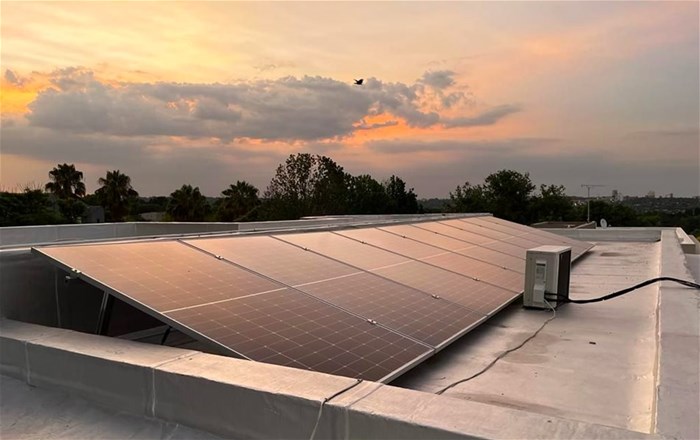South Africa is not alone when it comes to energy supply woes. In Europe and the UK, energy prices are soaring, while in the United States as many as one in six households cannot afford their electricity bills. Globally, we are on the cusp of a profound energy revolution in which renewables are taking the lead.
In the world of clean and sustainable energy, solar power is often touted as the future. This is particularly true in Africa where infrastructure and reliability are a challenge and sun exposure is plentiful. But there has always been a hitch: cost.
Versofy Solar co-founder Ross Mains-Sheard believes this barrier to entry is now being turned on its head. Technological advances, coupled with the sort of innovative thinking that sets Versofy Solar apart from the market, are merging to make solar more affordable and accessible to both households and businesses.
“We find ourselves in a perfect storm, with the cost of electricity from the national grid rising significantly each year while, on the other hand, the cost of solar is on a downward trend,” says Mains-Sheard. “We are very close to a scenario where renewables will not only be the best environmental option, but the more economical one as well.”
How do you join the energy revolution?
Gauteng and Cape Town-based Versofy Solar, a trailblazer in the South African solar industry, burst into the sector in 2021 with the aim of solving the pain points for potential solar customers to help drive a widespread uptake of clean solar energy.
Mains-Sheard, a civil engineer with an entrepreneurial streak and a fascination with problem solving, explains: “Traditionally solar has been reserved for the fortunate few who could afford to pay the R150,000-plus price tag upfront and in cash. By offering flexible payment options we have opened up the market from the few to the many. We are quickly reaching the point where if someone can afford to pay their monthly electricity bill they can afford to pay their solar bill.”
Furthermore, the ripple effects of this green uptake will be felt across the South African economy. The solar ecosystem is a hive of activity and opportunity, spanning installers, distributors, banks, insurance and logistics companies. By joining the revolution, South Africans will help move the economy forward, at a time when it is most needed.
Power up with flexible payment options
Versofy Solar is playing its part by making it easier for South Africans from all walks of life to join the energy revolution and achieve energy independence by using a flexible, subscription-based payment offering.
“This approach not only allows a wider range of people to gain access to the service, but also removes the cost of ownership required to maintain the product,” says Mains-Sheard. “Another huge benefit to subscriptions is that it allows the end user to constantly have access to the latest and greatest technology.”
Instead of paying for a full system upfront, Versofy Solar offers a 60-month rent-to-own subscription model or a solar-as-service option over 36 months.
The momentum is growing
To date, more than 400 homes have already opted for Versofy Solar’s hybrid solar solution and versatile payment and subscription options. “We have been doubling growth month on month and should surpass our annual target of 600 homes within the next few months,” says Mains-Sheard.
Versofy Solar co-founder Angus Henderson notes that Versofy Solar’s innovative approach to financing solar has certainly resonated with the market and consumers.
“We were one of the first to offer a range of products like this,” says Henderson. “There has been very positive feedback from the market, purely because people are crying out for a solution to the energy crisis.”
Switch to the sun
Versofy Solar’s growth from a team of two to a business of 20 (in just one year) highlights the demand in the market currently. By using technology to streamline operations, they are able to keep up with the growing demand. With still relatively low uptake nationwide, the co-founders hope their unique subscriptions model will further boost the number of households opting to invest in energy security.
“The energy behind the revolution is palpable and we want South Africans to feel this, to feel a part of something bigger, because what we are doing matters. We are extremely excited to be spearheading an energy revolution to fast forward the transition to a renewable, sustainable future,” concludes Mains-Sheard.
And this is how you spark a revolution.





























